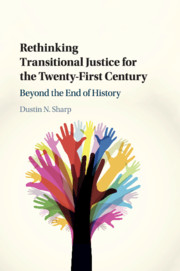1 - Introduction
Transitional Justice Foundations
Published online by Cambridge University Press: 23 February 2018
Summary
- Type
- Chapter
- Information
- Rethinking Transitional Justice for the Twenty-First CenturyBeyond the End of History, pp. 1 - 16Publisher: Cambridge University PressPrint publication year: 2018



